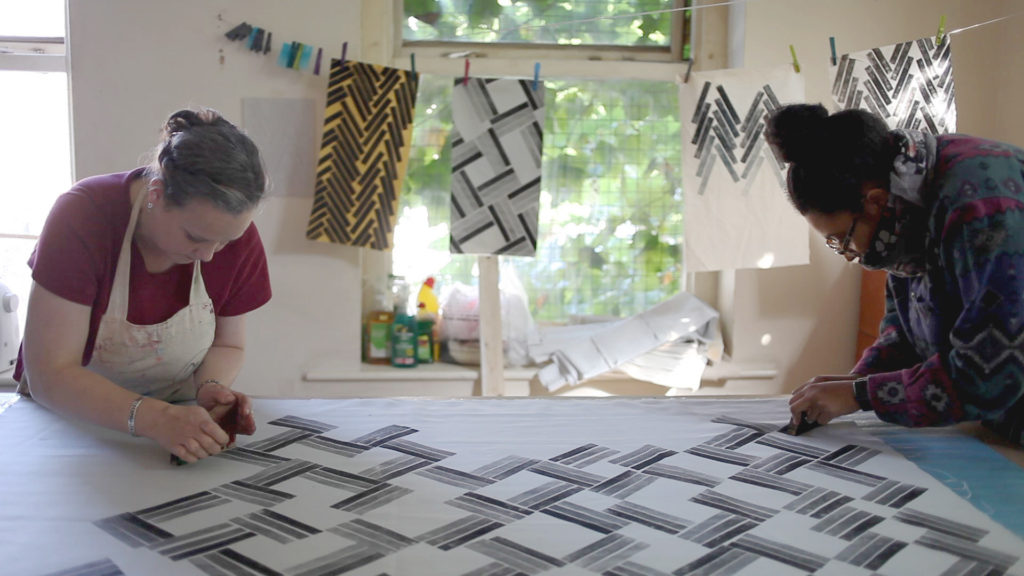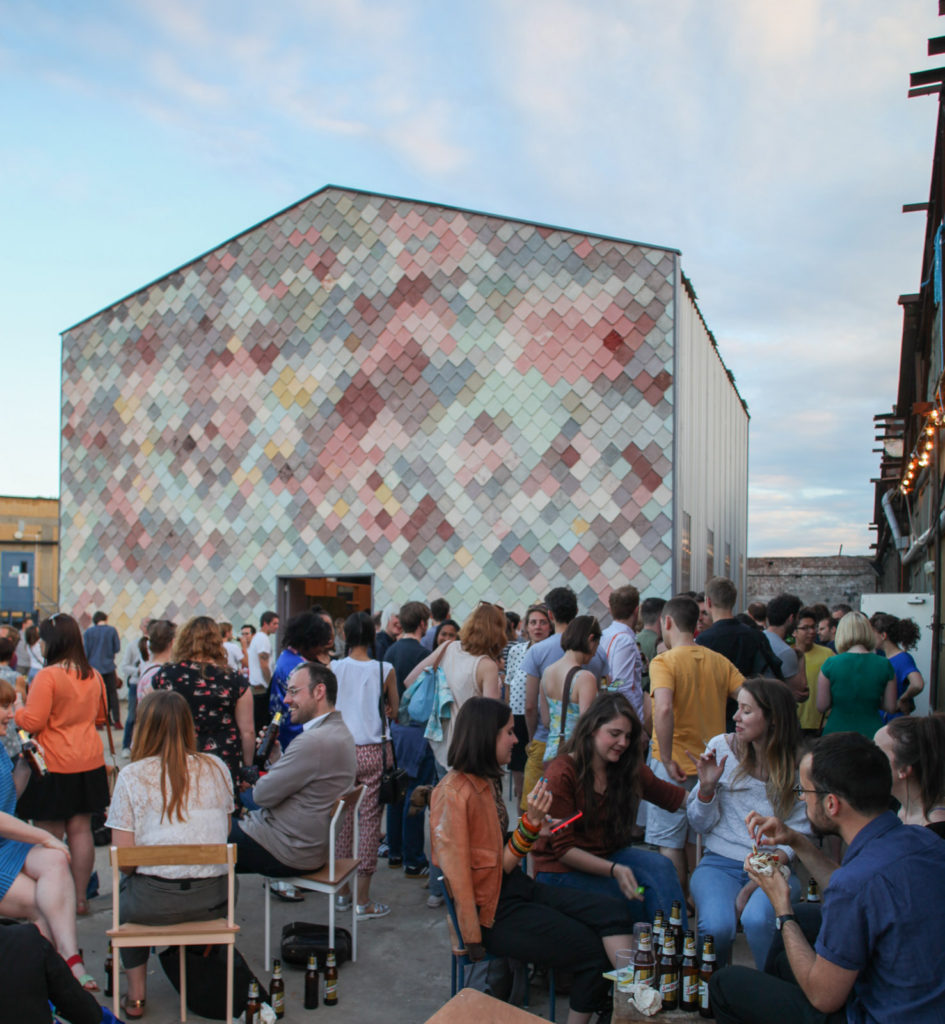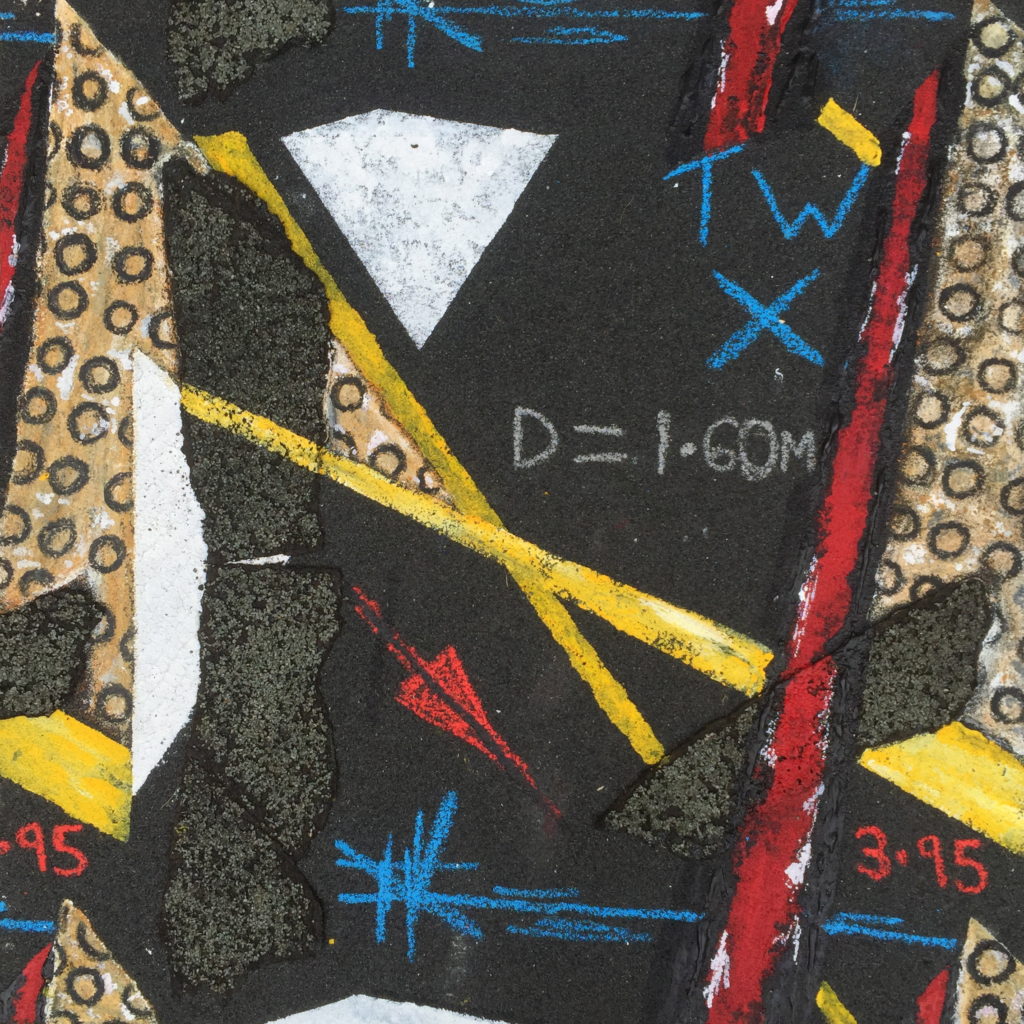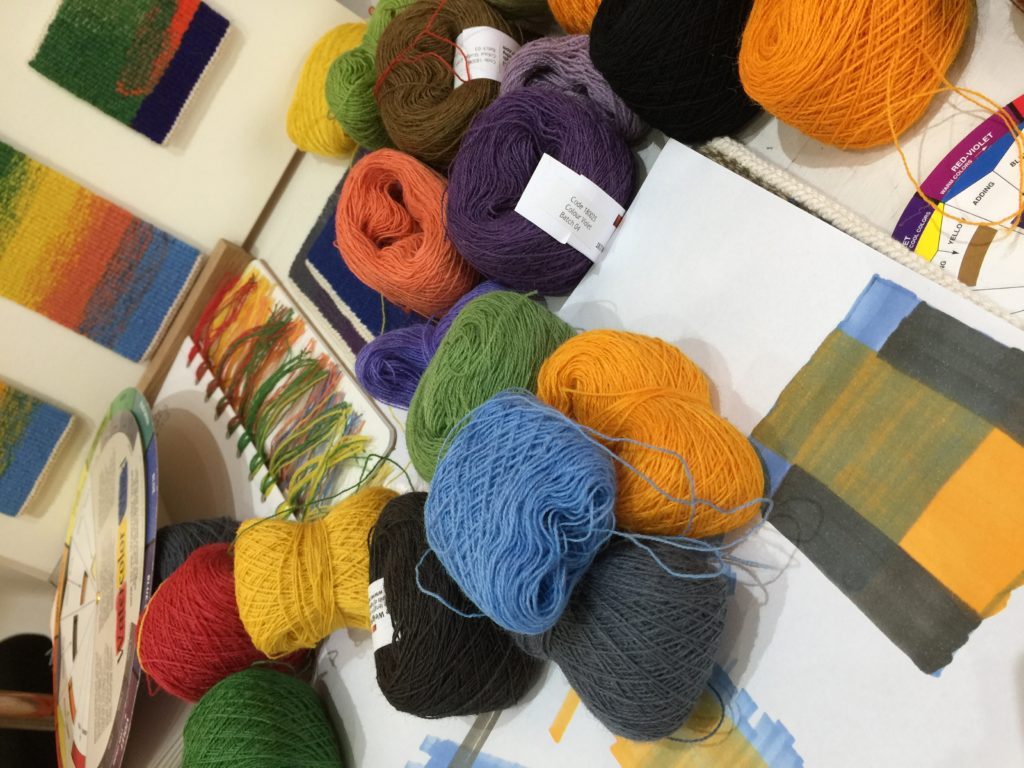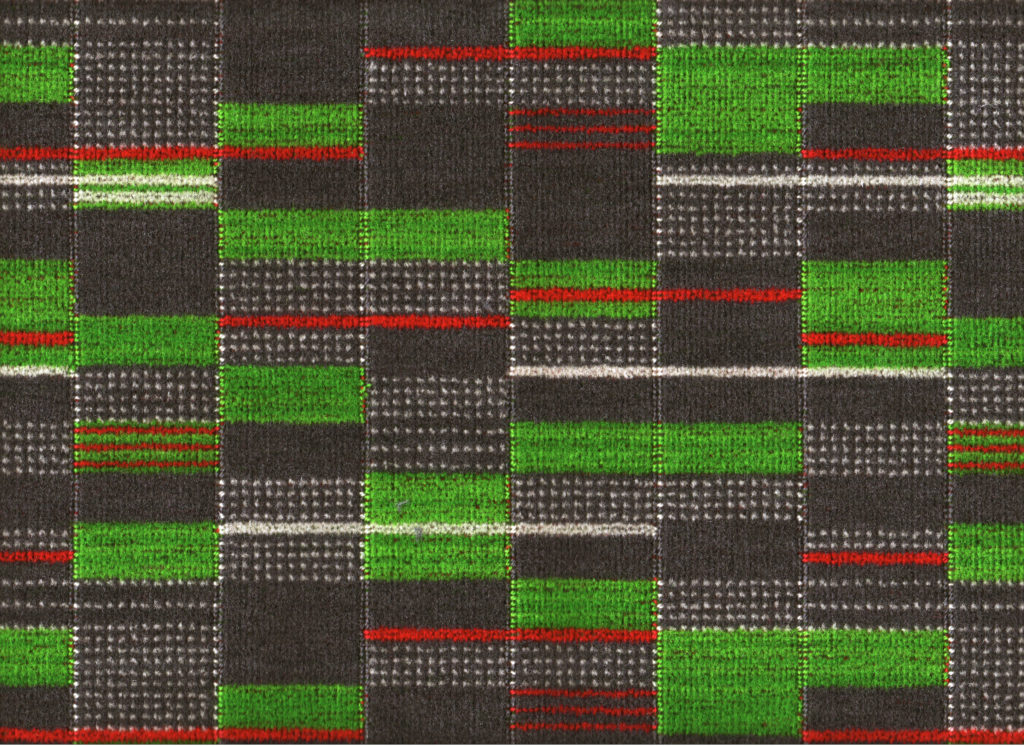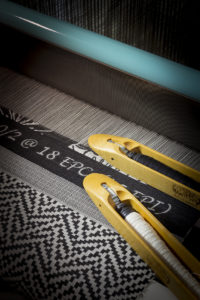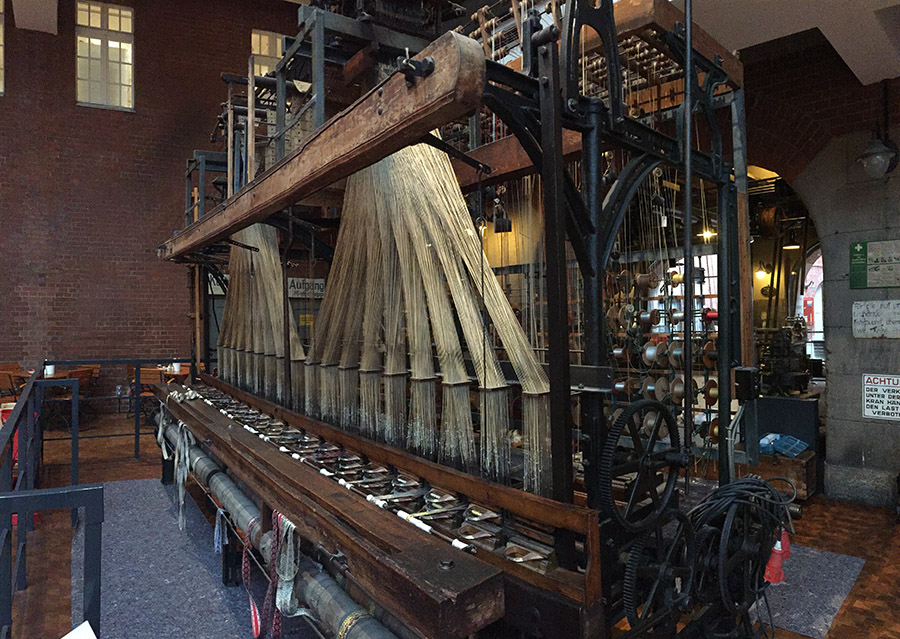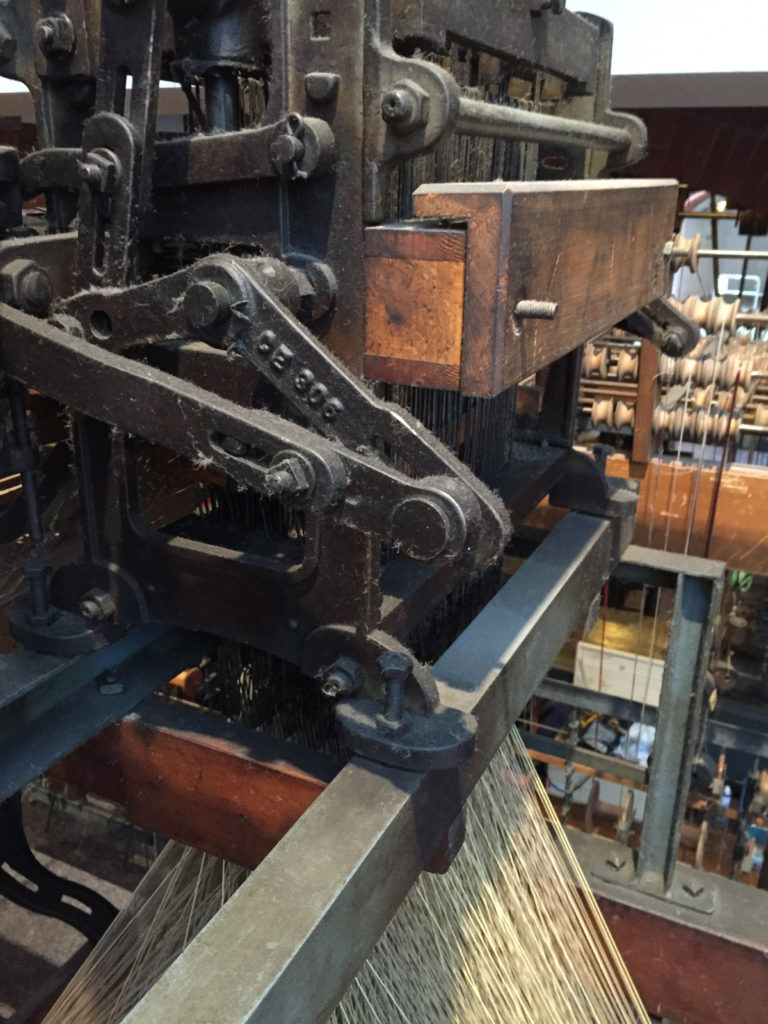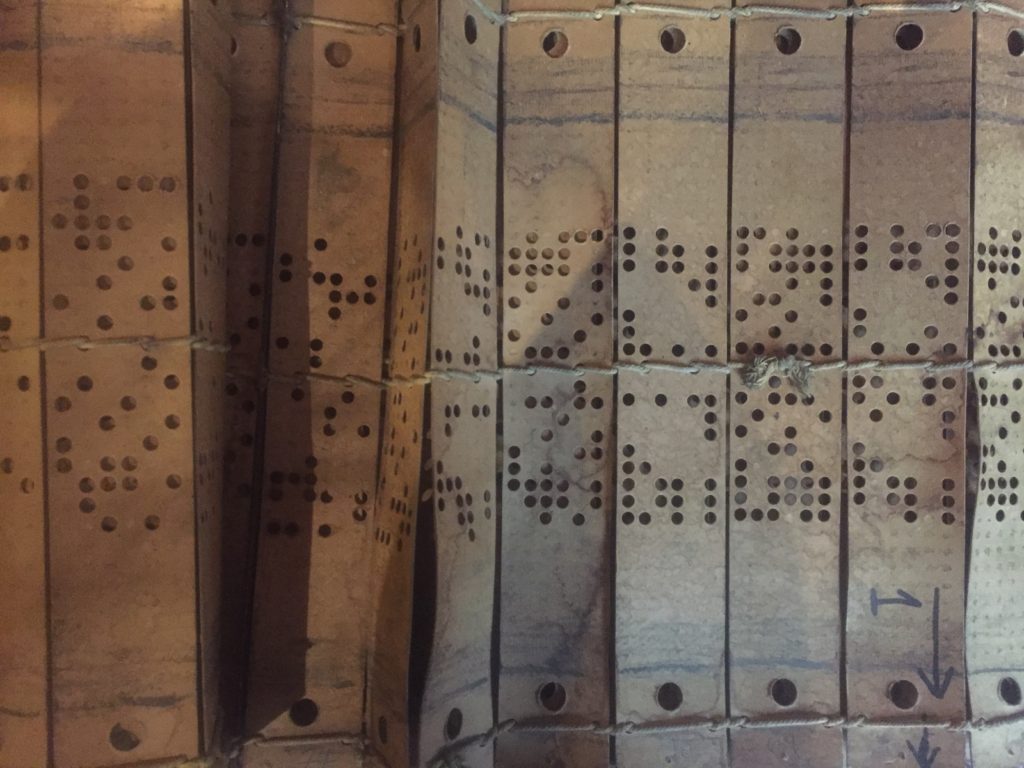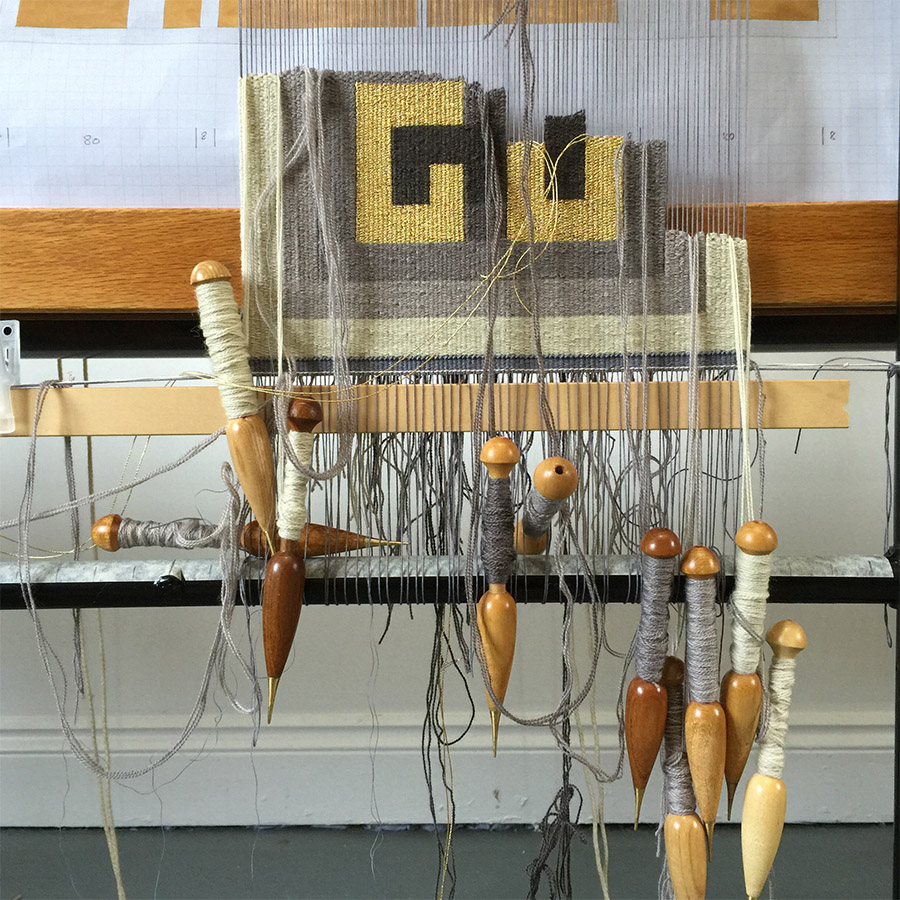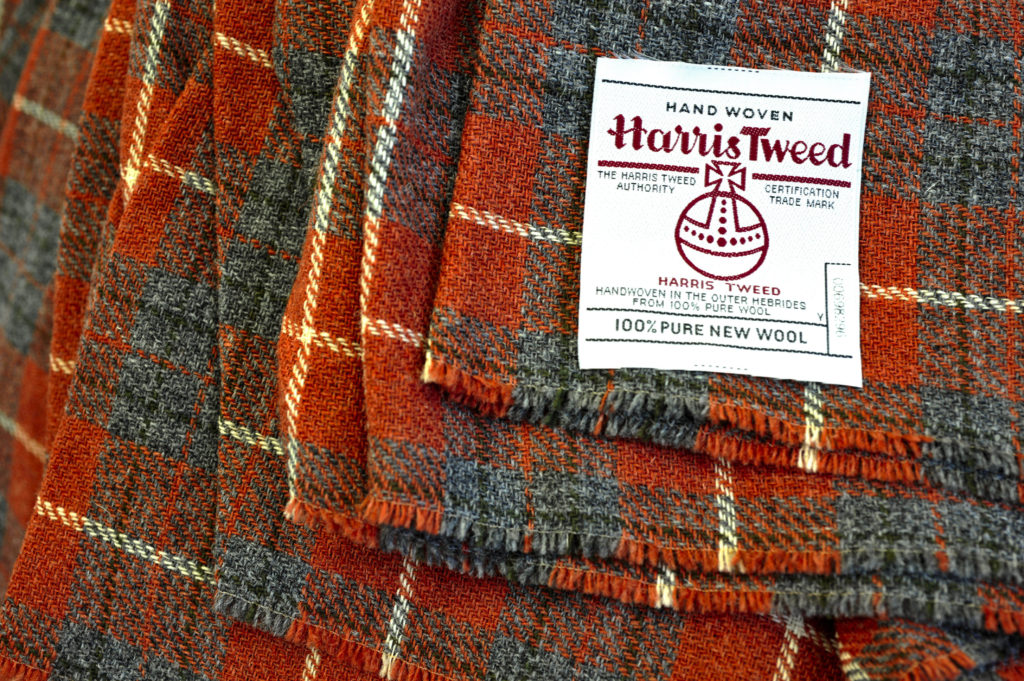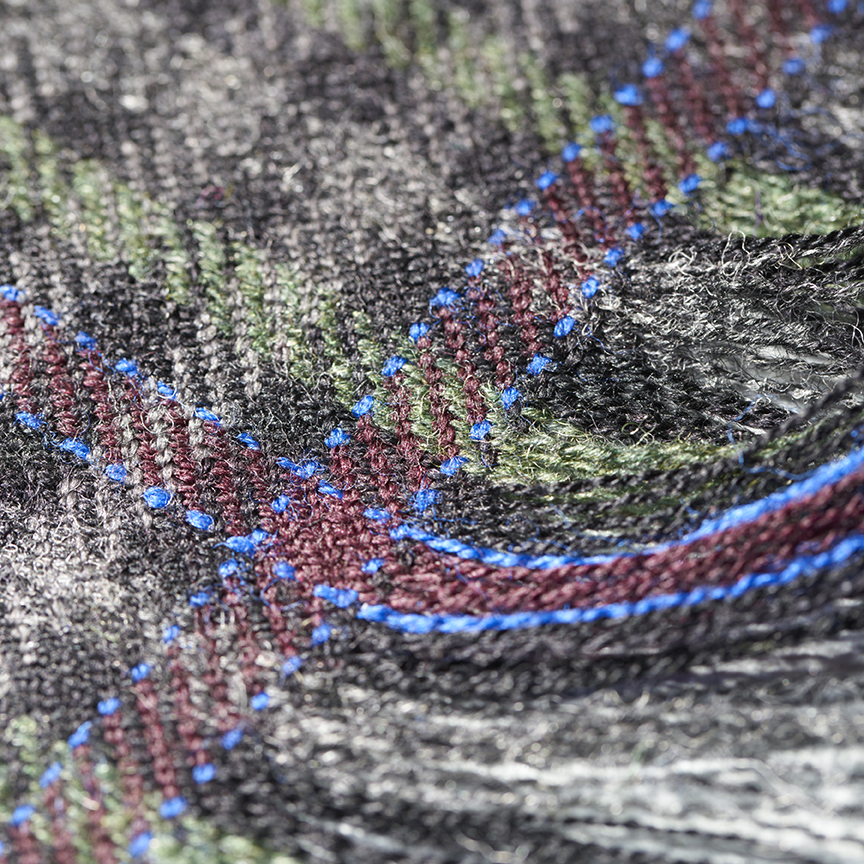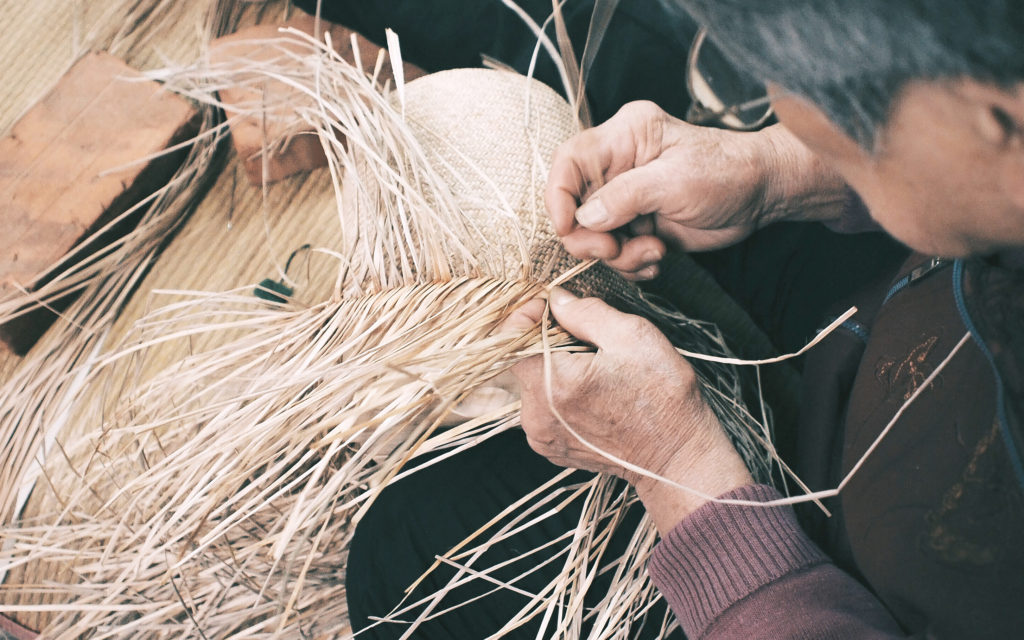 Weaving Futures is an exhibition at London Transport Museum highlighting the importance of woven textile design to the London Transport system. The exhibition explores the process and making of digital woven textiles, as part of the Museums’, Designology season.
Weaving Futures is an exhibition at London Transport Museum highlighting the importance of woven textile design to the London Transport system. The exhibition explores the process and making of digital woven textiles, as part of the Museums’, Designology season.
Each week, visitors will be able to see invited designers/artists in residence in the Designology studio, who will be working on a project brief and interacting with a weaver in their residency dates. The weavers will be interpreting the residents work live into digital woven textile prototypes and final works on a state-of-the-art TC2 digital jacquard loom.Â
Week 3 features:Â Camira
Residency dates: 9th &Â 10th Dec 2016. 18th Jan & 7th Feb 2017
Activity days: 9th & 10th Dec 2016, 7th Feb 2017
Camira is an independent UK based company which designs and manufactures contract performance fabrics for transport and commercial interiors. They are the major sponsors of  the Weaving Futures exhibition
The company was founded in 1974 as Camborne Fabrics in Huddersfield, which spent 9 years as part of the US Interface organisation before completing a successful management buy-out 10 years ago. They got involved in transport fabrics through a couple of acquisitions, firstly British Furtex Fabrics in 2003, then John Holdsworth & Co in 2007. The relations between the Holdsworth brand and TfL go back decades, as Holdsworth was originally founded in 1822 and got involved in moquette rail fabrics at a very early stage.
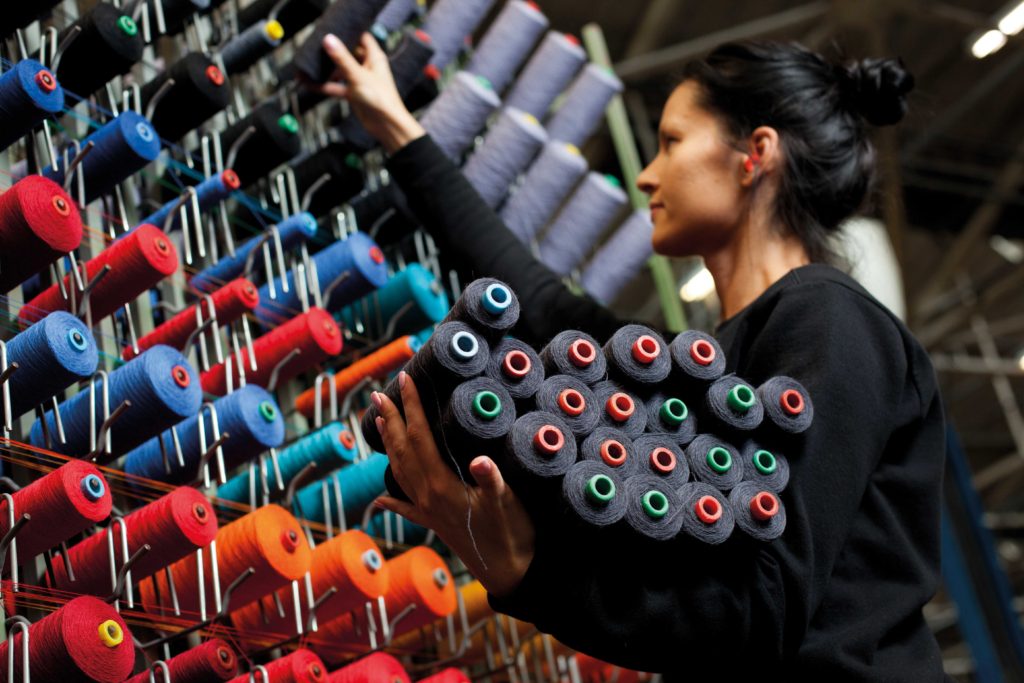 Camira is described as a young company with a very rich heritage. They have over 500,000 sq. feet of UK manufacturing, 75,000 sq. feet in Lithuania, and control the bulk of their supply chain and manufacturing processes, from yarn dyeing, through warping, weaving and textile finishing.
Camira is described as a young company with a very rich heritage. They have over 500,000 sq. feet of UK manufacturing, 75,000 sq. feet in Lithuania, and control the bulk of their supply chain and manufacturing processes, from yarn dyeing, through warping, weaving and textile finishing.
They have in-house design, colour and technical specialists, who can exploit their diverse weaving capabilities to create different fabric constructions and design styles.
Camira make 8 million metres of fabric a year, including a million metres for transport applications, and sell to 70 countries around the world. They hold the Queen’s Awards for International Trade and Sustainable Development.
Other residents participating in the Weaving Futures season include: Assemble, Beatwoven, Philippa Brock, Camira, Central Saint Martins, BA Textile students, Samuel Dempsey, Linda Florence, Gainsborough Weaving Company, Eleanor Pritchard, Rare Thread : aka Kirsty McDougall & Laura Miles, Josephine Ortega, Ismini Samanidou, Studio Houndstooth: Jo Pierce, Takram & Priti Veja
Resident artists and designers have been invited to respond to a project brief; exploring the role of textiles in modern transport now and in the future. They will focus on ‘untapped’ sources of data generated by, or helpful to, the transport system. Their responses will then be interpreted into woven textiles, live for museum visitors.
Creative responses may span from future speculations on data capture and its textile use, to new methods of digitising human interactions, to creative interpretations and visualisations of existing TfL data sets.
The weavers for the season are Rosie Green & Hanna Vinlöf Nylen
Text and images : With thanks to Camira

